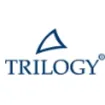INTERNATIONAL TELECOMMUNICATION UNION
ITU is the leading United Nations agency for information and communication technologies, with the mission to connect the world. To achieve this, ITU manages the radio-frequency spectrum and satellite orbits at the international level, works to improve communication infrastructure in the developing world, and establishes global standards that foster seamless interconnection of a vast range of communication systems. ITU also organizes global Telecom events bringing together the most influential representatives of government and the private sector to exchange ideas and knowledge for the benefit of all.
Roster - EW4All Consultant on Inclusion and People-Centered Approach
Vacancy notice no: 2001
Sector: BDT
Department: DNE
Country of contract: Remote
Duty station: Home Based
Position number: [[positionNumber]]
Grade: [[PositionGrade]]
Type of contract: Consultant
Duration of contract: Various assignments (1 month to 12 months)
Recruitment open to: External
Application deadline (Midnight Geneva Time): 31 December 2025
ORGANIZATIONAL UNIT
The Telecommunication Development Bureau (BDT) is responsible for the organization and coordination of the work of the Telecommunication Development Sector of the Union. BDT deals mainly with development policies, strategies, programming, projects, as well as technical cooperation activities to enable and foster universal access to affordable, high-quality and secure telecommunications/ICTs and Foster equitable and inclusive use of telecommunications/ICTs to empower people and societies for sustainable development. To effectively and efficiently serve the needs of Member States, BDT is organized into four functional areas:
- Operations Coordination Department (Office of the Deputy to the Director) (DDR)
- Projects, Partnerships & Digital Skills Department (PPS)
- Digital Networks & Environment Department (DNE)
- Digital Knowledge Society Department (DKS)
The Digital Networks & Environment Department (DNE) is responsible to assist the Member States, especially the G77 countries, in a wide range of ICT development challenges, as basic connectivity, spectrum management, evolution of current to future broadband networks and technologies, enabling universal and affordable access, and strengthening the security through the cybersecurity support. In addition, the DNE Department provides expertise and needed support for emergency telecommunications and the increasingly important and urgent aspects related to the environment and climate change.
BACKGROUND INFORMATION
Disasters have devastating impacts on lives, livelihoods and economies. Least developed countries (LDCs) and small island developing states (SIDS) are particularly vulnerable to the effects of climate change and disasters.
Information and Communication Technologies (ICTs) play an important role in strengthening resilience by ensuring the timely flow of vital information before, during and after disasters strike. Access to reliable information supports decision-making processes and enables life-saving emergency response. The rapid expansion of ICT networks and services including radio, satellite and mobile services have created new opportunities to reach more people quickly. However, ensuring the resilience of the systems themselves is equally important to maintain their functionality during catastrophic events.
To be effective, early warning systems and crisis-time communication must prioritize last-mile connectivity and community-centred approaches. Reaching remote, vulnerable, and underserved populations requires innovative solutions, such as community radio, locally managed alert systems, and decentralised digital platforms. Strengthening local capacity through participatory approaches ensures that warnings are accessible, actionable, and culturally appropriate. Moreover, leveraging a mix of low-tech and high-tech solutions such as mobile-based alerts, social media, and traditional communication channels enhances inclusivity, ensuring no one is left behind in times of crisis.
TERMS OF REFERENCE
Under the guidance of the Head of the Climate Change and Emergency Telecommunications Division (CET), within the Digital Networks and Environment Department (DNE) of the Telecommunication Development Bureau (BDT). The consultant will:
Research and Analysis:
- Conduct research to identify locally relevant early warning information and actions for at-risk and vulnerable populations, including behavioural factors influencing information uptake and decision-making.
- Analyse trust and perception of early warning information among communities, exploring barriers to actionable response.
- Examine inclusion gaps in mobile-enabled risk communications, with a specific case study.
Assessments & tools:
- Implement the Community Trust Index for Early Warning, assessing community trust in early warning information, stakeholders, and early action measures.
- Develop and roll out a localized measurement framework to assess the effectiveness of risk communication and community engagement strategies.
Strengthening Community-Centred Approaches:
- Organize co-design workshops with governments, academia, civil society, and community representatives to develop, harmonize, and contextualize actionable messages for official hazard alerts.
- Conduct community-level workshops and training sessions to strengthen locally driven Community Early Warning Systems.
- Identify and recommend scalable solutions for last-mile connectivity, including radio, mobile-based alerts, and social media.
Policy and Implementation Support:
- Provide technical input for the development of National Emergency Telecommunication Plans (NETPs) and standard operating procedures.
- Support ITU and its partners in integrating inclusive risk communication approaches into broader EW4All implementation.
Reporting and Knowledge Sharing:
- Produce research reports, policy briefs, and case studies on best practices in community-centred early warning systems.
- Develop guidelines and toolkits to improve the inclusion of vulnerable populations in early warning dissemination strategies.
- Present findings in workshops, stakeholder meetings, and international forums, as needed.
CONCRETE DELIVERABLES
- Researched and analysed reports on behavioural factors, community trust, and barriers to early warning uptake.
- Implemented Community Trust Index for Early Warning in selected locations.
- Prepared a localized measurement framework for tracking risk communication effectiveness.
- Developed a case study on Enhancing inclusion in mobile-enabled risk communication.
- Facilitated co-design workshops, with recommendations on integrating actionable messages into national warning systems.
- Delivered community-level training sessions to support the rollout of Community Early Warning Systems.
- Finalized synthesis report, summarizing findings, lessons learned, and recommendations for ITU and partners.
COMPETENCIES
- Knowledge on community engagement, risk communications and early warning systems.
- Ability to conduct research and have excellent quantitative skills.
- Ability to communicate complex concepts orally and have excellent drafting skills in English.
- Ability to organise and develop customised content for workshops.
- Ability to work in a multicultural environment and establish harmonious working relationships with all stakeholders, including senior policymakers, senior civil society leaders and community leaders.
- Proven project management skills, including budget, activity, data management, monitoring and performance evaluation.
QUALIFICATIONS REQUIRED
Education:
Advanced University degree in social sciences, risk communications, anthropology, disaster management, or a related field.
Experience:
At least five (5) years of progressively responsible experience in conducting research, particularly related to community engagement, risk communications, and early warning systems. Familiarity with EW4All Initiative, disaster management landscape and early warning systems. Experience working with UN agencies, humanitarian organizations, or government institutions. Ability to engage effectively and appropriately with communities and key stakeholders such as governments, forecasting agencies, and other key partner organizations.
Languages:
Knowledge of English at advanced level. Knowledge of a second official language of the Union (French, Arabic, Chinese, Russian, Spanish) at intermediate level would be an advantage.
REMUNERATION INFORMATION
Between USD 300 to USD 430 per day to be defined according to the work experience of the consultant.
INFORMATION ON RECRUITMENT PROCESS
Please note that all candidates must complete an on-line application and provide complete and accurate information. To apply, please visit the ITU career website. The evaluation of candidates is based on the criteria in the vacancy notice, and may include tests and/or assessments, as well as a competency-based interview. ITU uses communication technologies such as video or teleconference, e-mail correspondence, etc. for the assessment and evaluation of candidates. Please note that only selected candidates will be further contacted and candidates in the final selection step will be subject to reference checks based on the information provided. Messages originating from a non ITU e-mail account - @itu.int - should be disregarded. ITU does not charge a fee at any stage of the recruitment process.
ITU applies a zero-tolerance policy against all forms of harassment. ITU is committed to diversity and inclusion within its workforce, and encourages all candidates, irrespective of gender, nationality, religious and ethnic backgrounds, including persons with disabilities, to apply to become a part of the organization. Achieving gender balance is a high priority for ITU.





